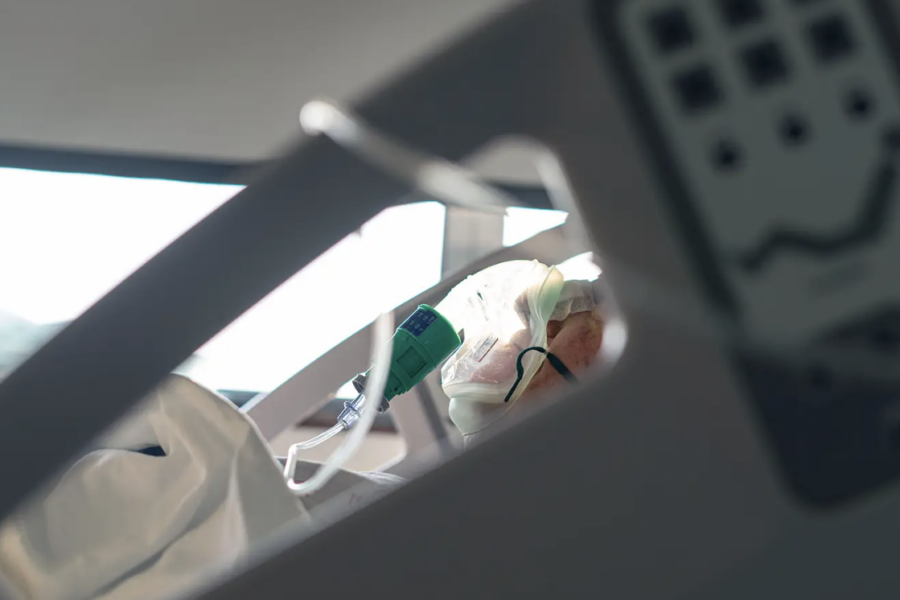Category: Clinical Considerations
Most people who ended up with long COVID started with a mild case, new study shows
(CBS News) Even mild COVID-19 cases can have major and long-lasting effects on people’s health. That is one of the key findings from our recent multicountry study on long COVID-19 – or long COVID – recently published in the Journal of the American Medical Association. Long COVID is defined as the continuation or development of symptoms three months after the […]
Jan 10, 2023
COVID Smell Loss: ‘Retraining’ Mostly Flops in Trial
(MedPageToday) Bimodal olfactory training with visual cues and the use of patient-preferred scents did not produce a clinically meaningful improvement in sense of smell among individuals with COVID-19–related olfactory loss, a 275-patient randomized trial showed. Among participants with post-COVID infection olfactory loss equally randomized to bimodal patient-preferred, bimodal physician-assigned, unimodal patient-preferred, and unimodal physician-assigned scents arms, […]
Jan 3, 2023
The Relationship Between Chronic Viral Infection and Long COVID
(NIH) In a small study supported by the National Institute of Allergy and Infectious Diseases (NIAID), researchers found that chronic viral infections may influence the likelihood of someone developing Long COVID. They also found that different chronic infections were associated with the development of different Long COVID symptoms. Some viruses cause underlying chronic infections. These viruses […]
Dec 29, 2022
Scientists have a theory on covid loss of smell: Damage to nasal cells
(Washington Post) Persistent loss of smell has left some covid-19 survivors yearning for the scent of their freshly bathed childor a waft of their once-favorite meal. It’s left others inured to the stink of garbage and accidentally drinking spoiled milk. “Anosmia,” as experts call it, is one of long covid’s strangest symptoms — and researchers may be one […]
Dec 27, 2022
Autopsies Show COVID-19 in the Brain
(MedPageToday) Early this year, leading researchers discussed what we knew — and didn’t know — about COVID-19 and the brain. Since then, new findings have emerged about SARS-CoV-2 and the nervous system, including the results of an autopsy study that showed the presence of the virus throughout the body and brain. How can a respiratory pathogen […]
Dec 27, 2022
Persistent post–COVID-19 smell loss is associated with immune cell infiltration and altered gene expression in olfactory epithelium
(Science) SARS-CoV-2 causes profound changes in the sense of smell, including total smell loss. Although these alterations are often transient, many patients with COVID-19 exhibit olfactory dysfunction that lasts months to years. Although animal and human autopsy studies have suggested mechanisms driving acute anosmia, it remains unclear how SARS-CoV-2 causes persistent smell loss in a […]
Dec 27, 2022
Long COVID: Could mono virus or fat cells be playing roles?
(AP) A British historian, an Italian archaeologist and an American preschool teacher have never met in person, but they share a prominent pandemic bond. Plagued by eerily similar symptoms, the three women are credited with describing, naming and helping bring long COVID into the public’s consciousness in early 2020.
Dec 27, 2022
Higher-Dose Steroids Upped Risk of Death in Non-Ventilated COVID-19
(MedPageToday) Higher-dose corticosteroids increased the risk of death in patients with COVID-19 and hypoxia, and who were receiving either no oxygen or simple oxygen only, compared with usual care that included low-dose corticosteroids, an analysis of the randomized RECOVERY trial showed.
Dec 27, 2022

Experiments Show Infection of Visceral Fat Cells May Contribute to Severe COVID-19
(SciTechDaily) Two types of adipocytes (fat cells) were infected in the laboratory: one obtained from human stem cells isolated from subcutaneous tissue and the other differentiated from stem cells taken from visceral fatty tissue. Experiments show that visceral fat – fat around the liver, intestines, and other organs, considered a risk factor for cardiovascular disease, […]
Dec 20, 2022
Blood-Related Syndrome Is Being Seen After Developing COVID-19 or Vaccination
(ContagionLive) In a study that was published in Nature Cardiovascular Research yesterday, investigators point out the increased incidence rates in POTS for people who are vaccinated or who have had COVID-19. “We show, in a cohort of 284,592 COVID-19-vaccinated individuals, using a sequence–symmetry analysis, that the odds of POTS are higher 90 days after vaccine exposure than 90 days […]
Dec 13, 2022